Digestive System
All information about "Digestive System" and the related magazine articles can be found here.
Our articles are written clearly and link to scientific studies where relevant. This is how we meet our own standards: we regularly deliver new, high-quality content for you—free of charge, no sign-up required, with the highest possible benefit to you.
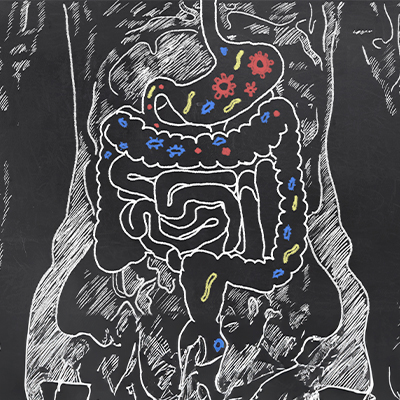
All you need to know about gut health
Intestinal health not only affects digestion, but also your overall wellbeing. Find out more now.
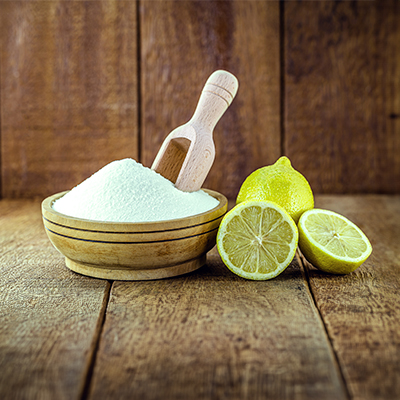
Home remedies for heartburn
Burning, heartburn, pain: almost everyone is familiar with heartburn. Taking a look at your lifestyle and diet can help manage the symptoms. Find out now how you can get relief in just a few steps!

Glycine regenerates body and mind
As an important amino acid, glycine is involved in many processes in the body and can have a positive effect on both physical and mental health. Muscles, skin, stress and psyche: find out more about the extensive areas of application and effects of this amino acid here.

How to recognise the symptoms of a vitamin deficiency
Permanent tiredness, mood swings, digestive problems and hair loss - vitamin deficiency can manifest itself in many unspecific symptoms. Find out which ones you shouldn't ignore.
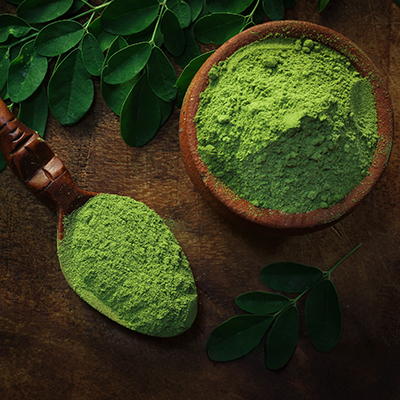
Is Moringa a real "superfood"?
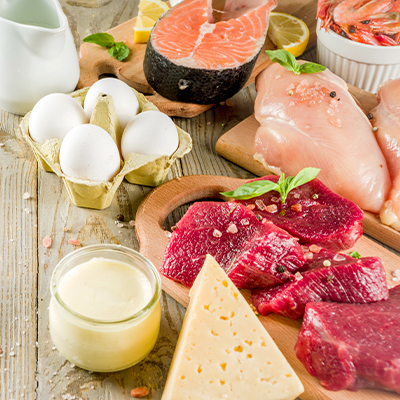
This is how versatile the micronutrient choline is in the body
The vitaminoid is a real all-rounder & is used in many places in the body as a cell building block. A deficiency has major health implications.

Omega 3 for your skin, heart and brain
Omega-3 fatty acids are found in some foods, including fish. If you have an unbalanced or vegetarian diet, omega-3 capsules are a sensible alternative to ensure you get enough of the fatty acid. Find out more about the many benefits of an optimal omega-3 intake and how a deficiency can become apparent.
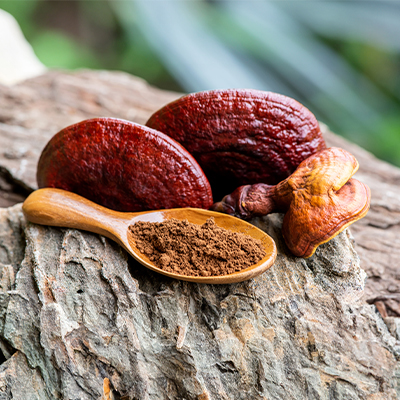
Reishi - a medicinal mushroom with thousands of years of tradition
What makes Reishi so special? Reishi has a long history in Traditional Chinese Medicine (TCM) and is now gaining popularity worldwide as a medicinal mushroom with positive health effects. Find out more about its many uses, the scientific research and the potential benefits attributed to it.

How L-carnitine works in energy metabolism
Carnitine is mainly found in animal foods and plays an important role in energy metabolism. Find out more now.

These are the causes of hair loss
There are many different types of hair loss in men and women - and there are different ways to help your hair grow back. Find out more now.
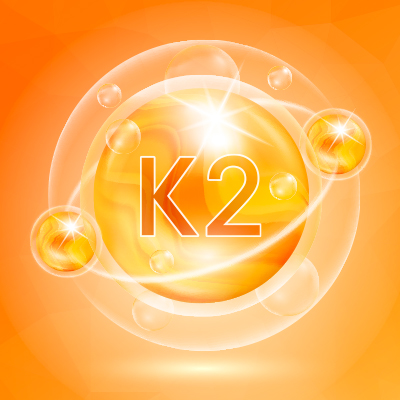
Vitamin K2 for bones and cardiovascular health
A vitamin K2 deficiency is associated with osteoporosis and arteriosclerosis. Here you can find out more about this important vitamin, its function in calcium metabolism and what you should definitely bear in mind when taking a supplement.
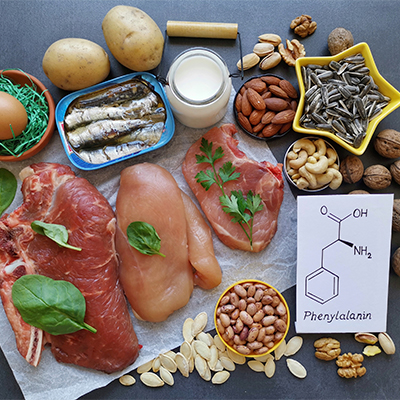
The body needs phenylalanine for this
The amino acid phenylalanine is required for the synthesis of dopamine and serotonin and is also an important building block for proteins. Find out more now.
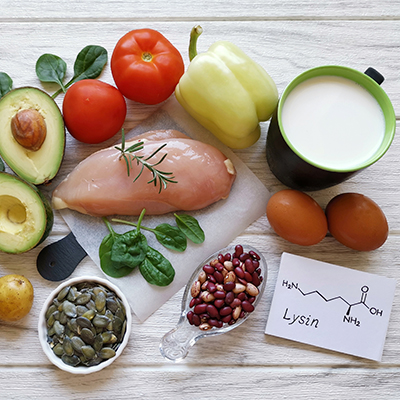
The essential amino acid lysine
From the metabolism to the immune system to the skin: there are many processes in the body in which lysine is involved. A deficiency of the essential amino acid can therefore disrupt these processes. The good news is that lysine is found in many foods. Find out more in this articel!

Your nutritional timetable for pregnancy
The right diet is particularly important during pregnancy to ensure that the expectant mother and, above all, the baby are adequately supplied with all the important nutrients. Because nutrition can influence the baby's development! Valuable answers and tips can be found here.
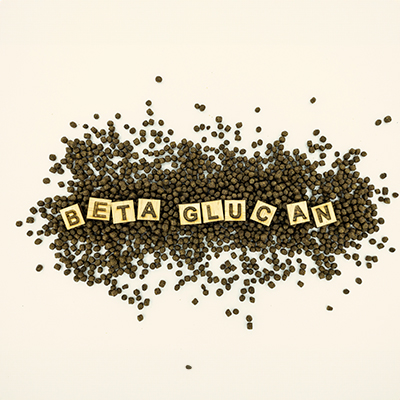
The importance of beta-glucan for the body
Good for the gut and the immune system? Fibre is said to have a number of health-promoting properties and effects. We have summarised these for you in this article.
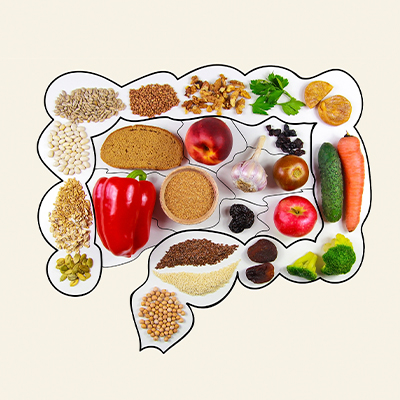
Propionic acid - why we need vegetables for this
Everyone has heard that fibre is important for our health, but do you know why? Did you know that vegetables and pulses form propionic acid in our gut? But what is it good for? Find out more here!

Selenium - effect, deficiency and overdose!
The trace element selenium, which is essential for us, plays a supporting role throughout the body - whether in numerous metabolic processes or a healthy thyroid gland. However, the low content of selenium in our food is often not enough to ensure an adequate supply. What exciting findings have scientists made with it in research and how is it linked to Hashimoto's? Selenium deficiency or overdose - how bad is it in each case? Read more about it here!

Guarana - a good coffee alternative?
Is guarana a real alternative to your morning cup of coffee? The extract from the superfruit from the tropics is becoming increasingly popular as an additive for drinks and as a supplement.
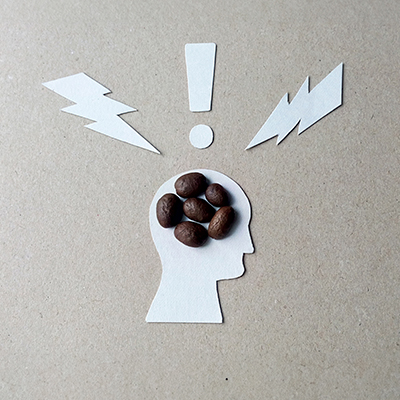
All you need to know about caffeine tablets
Caffeine tablets are a convenient and fast-acting way to get the energy boost of caffeine without drinking a cup of coffee or other caffeinated beverages. Find out more now.

Brown algae - nutrients and vitamins from the sea
Inconspicuous and widely underestimated: brown algae are not only tasty as food, but also a good way to support your body as a dietary supplement. Find out everything you need to know about the benefits of these algae here.

Turmeric - more than just a spice
Turmeric is still very popular today. What is the truth behind the phenomenal effects attributed to this yellow tuber?

The underrated power of folate: Why this vitamin is so important

B6 - a vitamin with many tasks!
The water-soluble vitamin cannot be stored by the body, but is extremely important for us! It is essential for metabolic processes, nerve transmission, hormone production, the immune system and also for regulating homocysteine levels! But despite a balanced diet, are you at risk of vitamin B6 deficiency? Maybe it's due to the contraceptive pill! Read more about this here!

Why is methylsulfonylmethane (MSM) so important to us?
An adequate supply of sulphur is essential for the proper functioning of enzymes and amino acids. Here you can read about the benefits of MSM for our skin and hair, as well as for osteoarthritis, allergies and sports injuries.
Your body, your digestive system: Everything you need to know about the anatomy and function of digestion!
Have you ever wondered exactly how your body converts the food you eat into energy and nutrients? The journey that your breakfast, for example, takes through your digestive tract is complex. From the initial mechanical grinding in the mouth to the final excretion of the indigestible remains – every step plays an important role in ensuring that your body gets the nutrients it needs.
Nutritionists and doctors agree: a thorough understanding of digestion is the key to a healthy and vital life. Ready to learn more? We can give you the information you need!
How is the digestive system structured?
The human digestive system includes several important organs:
- Mouth
- Oesophagus
- Stomach
- Small intestine (including duodenum)
- Large intestine (including colon and rectum)
- Liver
- Pancreas
- Gall bladder
Each of these organs has specialized tasks and functions that ensure the efficiency of the process and thus the absorption of nutrients [1].
How does digestion work in simple terms?
The digestive system is a comprehensive model that consists of several organs that work together to break down the food we eat into usable nutrients. The sequence is clearly structured and quickly explained [1]:
- 1. The process begins in the mouth, where mechanical crushing and enzymatic digestion by saliva begins.
- 2. The food pulp enters the stomach via the esophagus.
- 3. In the stomach, gastric acid and the enzyme pepsin continue the digestive process.
- 4. In the small intestine, the substances are further broken down and absorbed, aided by enzymes from the pancreas and bile from the gallbladder.
- 5. The large intestine (including the rectum) absorbs water and electrolytes before excreting indigestible residues as stool.
Why is digestion important?
The digestive process is essential to break down the nutrients absorbed from food into smaller molecules that the body can absorb and use. These substances are necessary for energy, growth, cell repair and general well-being. Without an efficient digestive process, the important substances could not be absorbed into the body.
Which organ is particularly important for digestion?
Each organ in the complex digestive tract plays a crucial role and has its own function, but the small intestine is central to efficient digestion and absorption of nutrients. The small intestine is the longest section of the digestive tract and plays a key role in breaking down food into absorbable components.
The pancreas produces a variety of enzymes that are released into the small intestine. These enzymes break down carbohydrates, proteins and fats into their smallest components so that they can then be absorbed through the small intestinal wall. In addition, the liver produces bile, which is stored in the gallbladder and then released to emulsify fats and facilitate their absorption in the small intestine [2].
How long does it take for food to be digested in the stomach?
The digestion process in the stomach can take between 2 and 4 hours, depending on the type and amount of food consumed. Fats and protein-rich foods take longer to digest than carbohydrates.
How long does digestion take until defecation?
The length of time it takes for food to be digested can vary depending on the type of food and individual factors. In general, it takes about 6 to 8 hours for food to pass through the stomach and small intestine. After that, it can take another 12 to 24 hours for the indigestible remains to be transported through the large intestine and excreted as stool.
Why do digestive problems occur?
We've all experienced the uncomfortable feeling – bloated tummy, sluggish digestion, constantly changing moods. Digestive problems can occur for so many reasons: poor eating habits, stress, too little fiber, insufficient fluid intake and certain medical conditions. But don't worry, there are simple ways to get your gastrointestinal tract going! Find out more about bowel health here.
How can you stimulate digestion?
The intestines digest continuously, but the efficiency of the digestive process can be affected by various factors such as diet, hydration and physical activity. Taking the following aspects into account can help you support your digestive system:
Nutrition and dietary fiber
Dietary fiber is the indigestible part of plants that stimulates peristalsis by increasing stool volume and accelerating intestinal transit. There are soluble fibers that dissolve in water and form a gel-like substance, and insoluble fibers that absorb water and increase the mass of the stool. Foods such as whole grains, fruits, vegetables, and legumes are rich in fiber and thus promote healthy digestion. They form propionic acid in our intestines – find out more here!
Fluid intake
Water is essential for the digestive process, as it softens stools and facilitates the movement of food through the intestines. Adequate fluid intake helps to prevent constipation, and supports the functioning of enzymes necessary for the breakdown of nutrients. It is recommended to drink at least 1.5 to 2 liters of water daily, depending on body weight and activity level.
Physical activity
Regular exercise promotes intestinal motility, which is the ability of the intestines to move food through wave-like muscle contractions. Activities such as walking, running, swimming and yoga can stimulate intestinal motility and help to prevent digestive disorders such as constipation. Exercise also reduces stress, which can negatively affect the digestive process.
Stress management
Stress can significantly impair the digestive process by increasing the release of stress hormones such as cortisol, which can slow down or speed up bowel function. Relaxation techniques such as meditation, deep breathing, progressive muscle relaxation and adequate sleep can help to reduce stress and thus support digestion.
Probiotics and prebiotics
Probiotics are live microorganisms that can positively influence intestinal flora. They are found in fermented foods such as yogurt, kefir, sauerkraut, and kimchi. Prebiotics, on the other hand, are indigestible food components that promote the growth and activity of beneficial bacteria in the gut. Both contribute to intestinal health by maintaining the balance of intestinal flora and improving the digestive process [2].
Chewing and eating habits
Thorough chewing is the first step in the digestion process and prepares food for enzymatic digestion in the stomach and intestines. Eating slowly and chewing thoroughly ensures that food is well-crushed, facilitating mechanical digestion and improving the absorption of nutrients [5]. In addition, eating mindfully can help avoid overeating and relieve the digestive system.
More helpful tips
Different life situations or illnesses require an adjustment of the diet to ensure the supply of nutrients and to alleviate any symptoms:
- More about optimal nutrition during pregnancy
- Help with nutrition tips for osteoarthritis
- Iron deficiency and iron deficiency anemia
Sources
[1] https://www.netdoktor.de/anatomie/verdauungssystem/
[2] https://www.studysmarter.de/schule/biologie/der-menschliche-koerper/verdauungstrakt/
[3] https://www.kenhub.com/de/library/anatomie/verdauungssystem
[4] https://viamedici.thieme.de/lernmodul/557179/529666/verdauungssystem
[5] https://www.spektrum.de/lexikon/biologie/verdauung/69251
